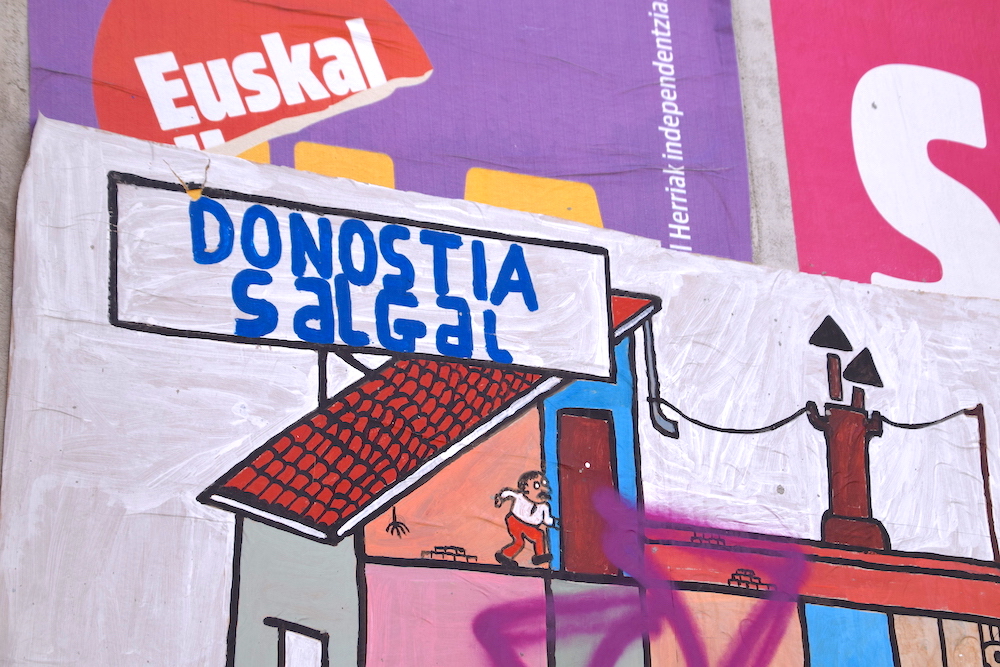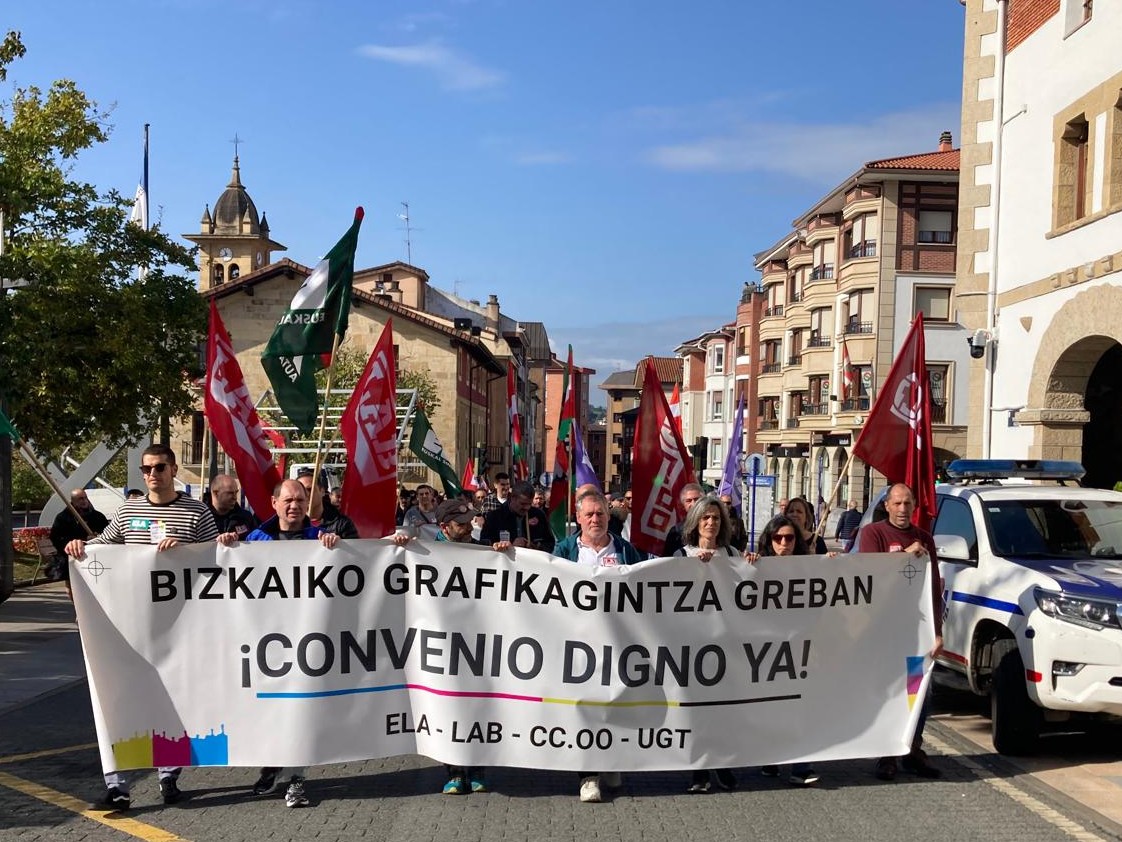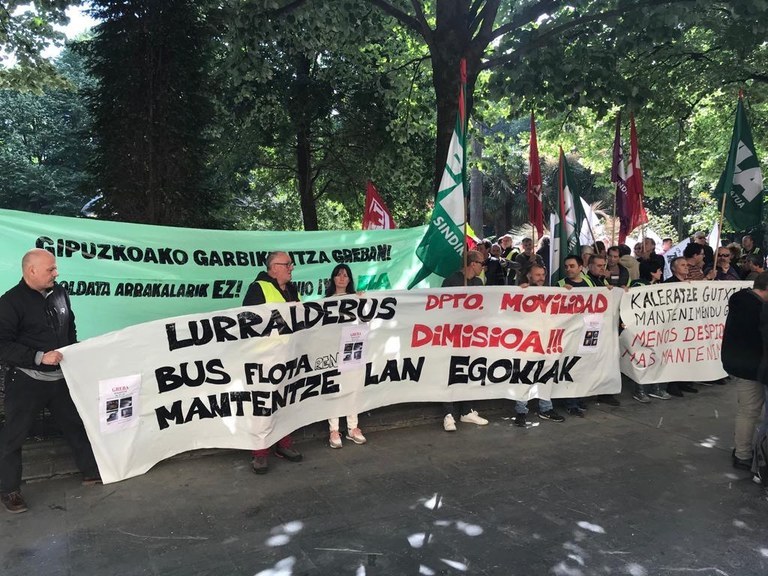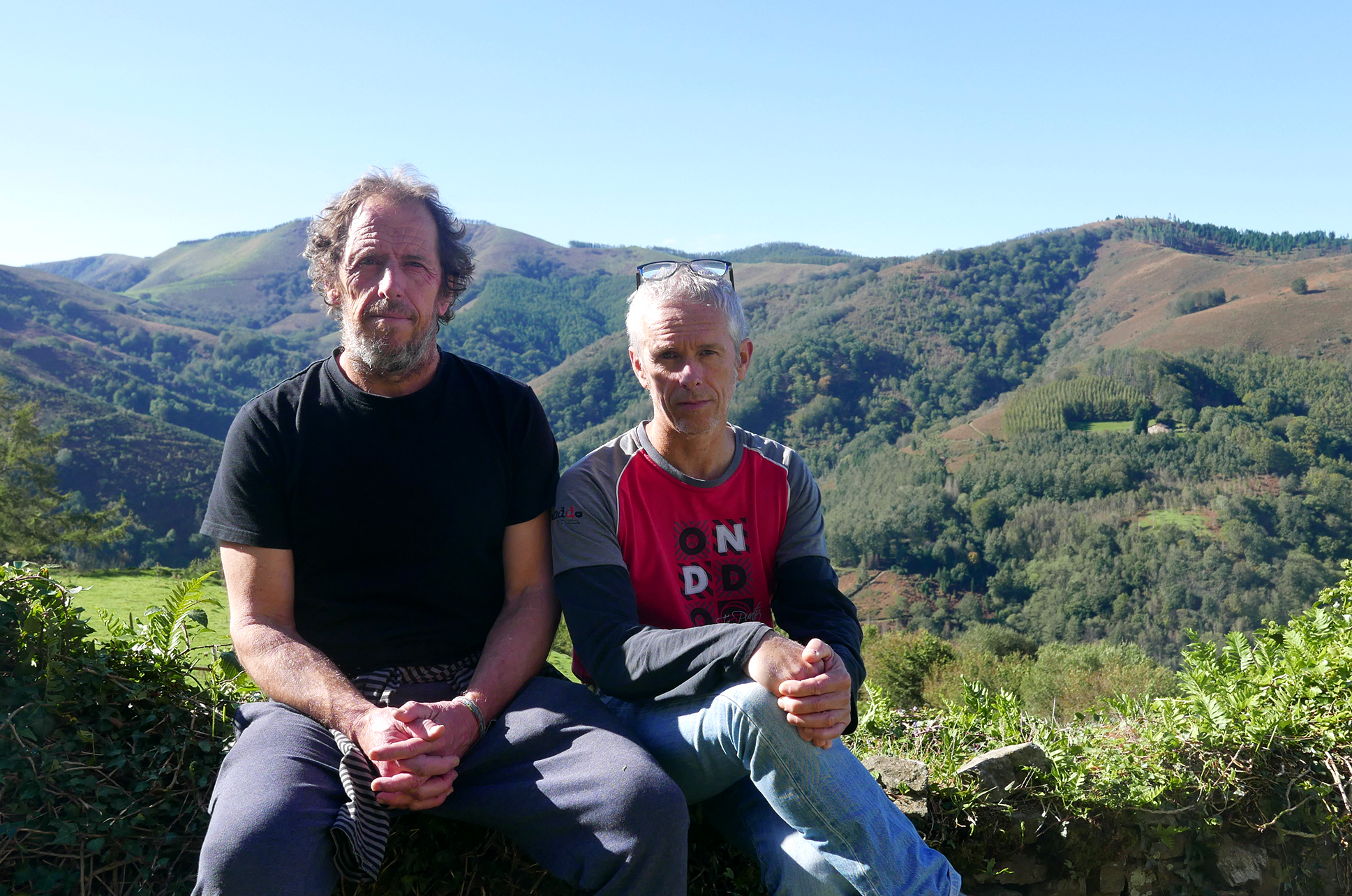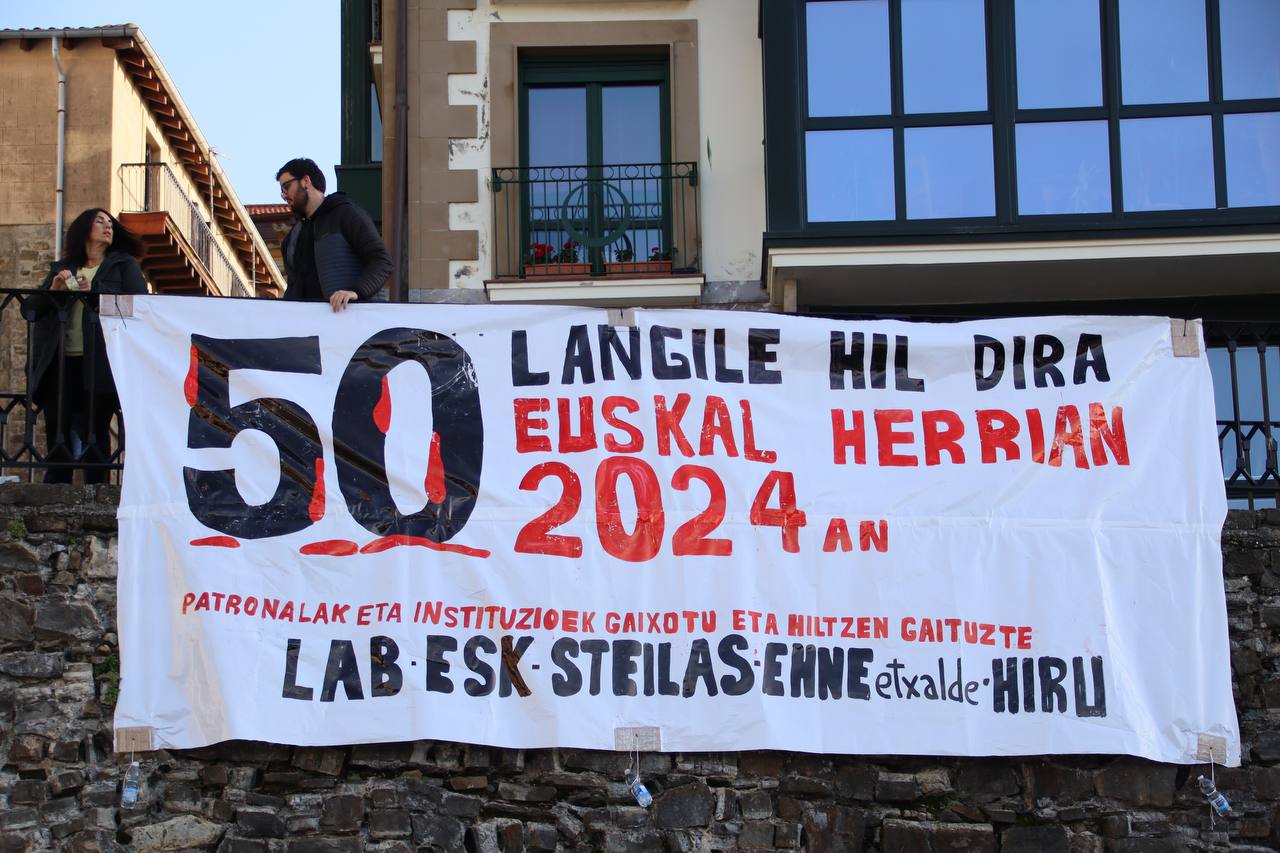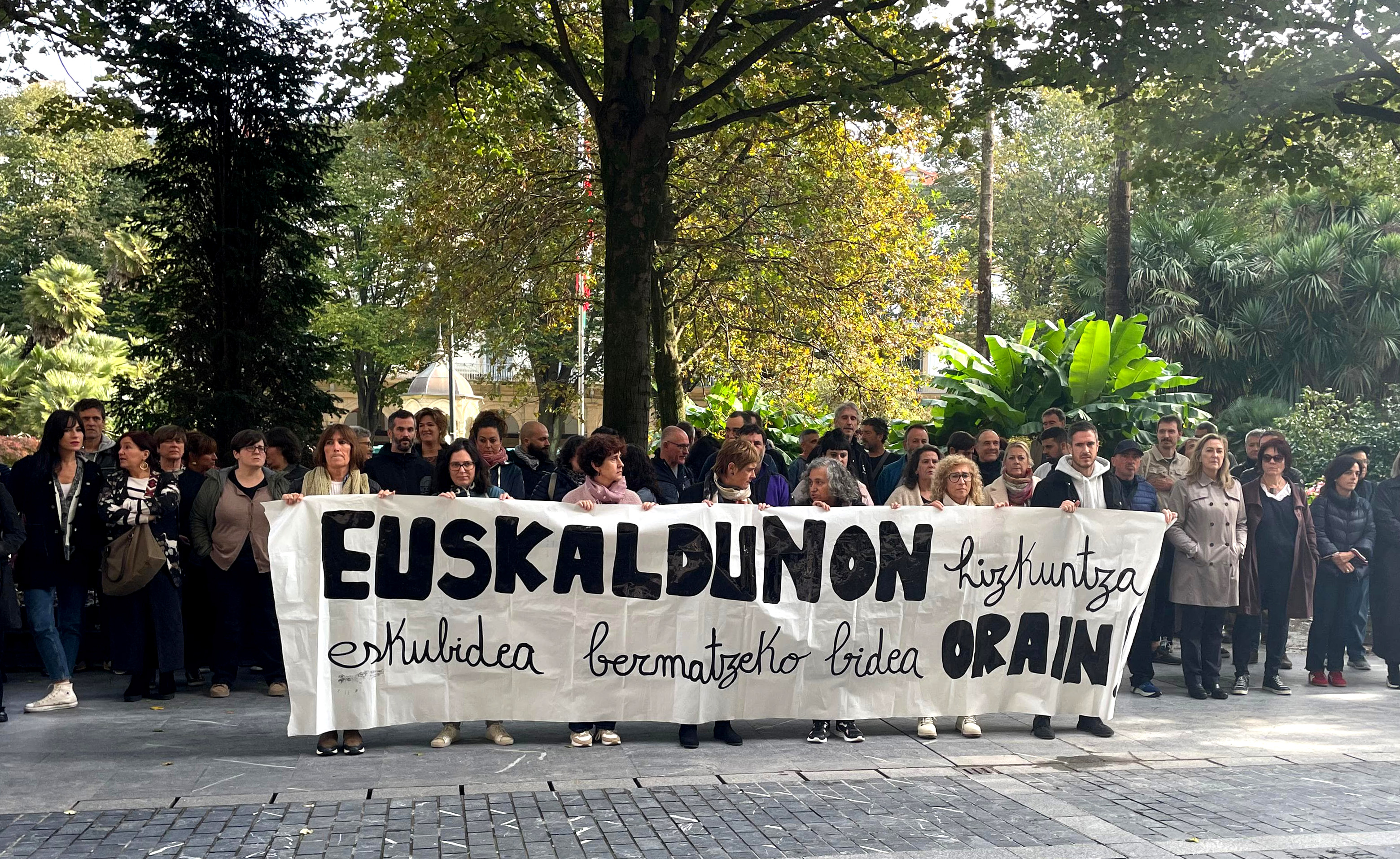October against Turistification was rounded off last Sunday with a multitudinous demonstration in favor of the tourist growth of the Bizilagunak platform, but the debate on turistification is still alive in the city. In particular, they have contacted the tourism of... [+]
The lottery, symbol of capitalism
- The author presents a very critical analysis of the lottery. According to him, the lottery “generates the illusion of bringing wealth closer to the humble people and shows us the nicest face of wealth and presents it to us as something desirable and accessible”. Likewise, “it makes us believe that money is real, even though the only real thing is the wealth that workers create every day with their sweat.”
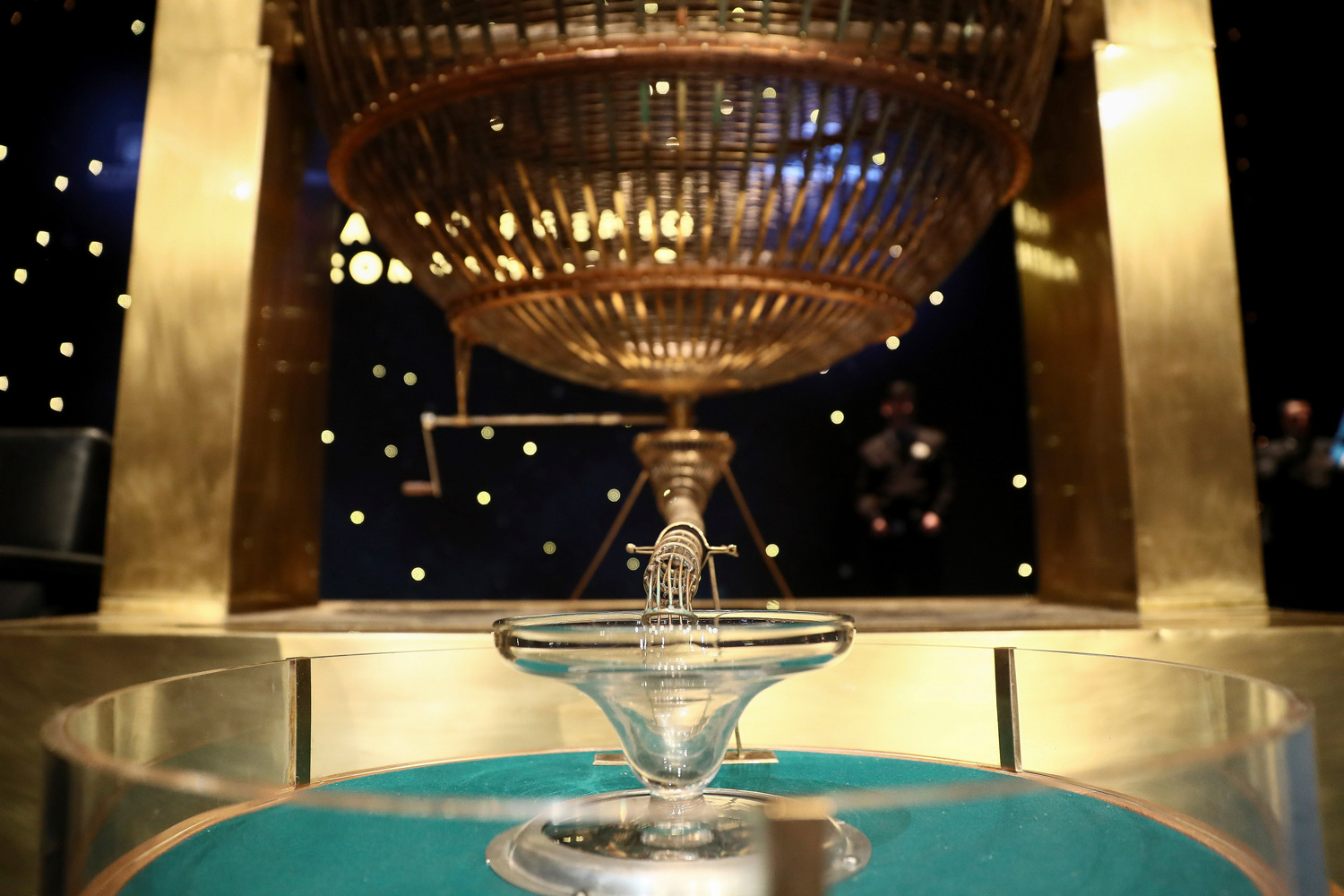
Someone will remember the desperate fate of José Antonio Roca. The former Urbanism Manager of the Town Hall of Marbella (Andalusia) during the mandate of Jesús Gil y Malaya as the main defendant in the case of corruption investigating the case. This politician won 50 big lottery prizes in 15 years. The media Eldiario.es explained in 2012 that “the investigators acting at the orders of Judge Miguel Ángel Torres estimated the probability of Roca winning the lottery. Of collagen 43 I only had a chance to win the lottery so many times or to tell the truth.”
43.000.000.000.000.000.000.000.000.000.000.
The main role of the lottery, and the most clumsy and prominent, was thus, perhaps for the first time: it is a money-laundering freeway for the extremist elites of the Spanish State. However, the list is longer. Carlos Fabra received €2.2 million in prizes in the period 2000-2011. In addition to the pp leaders, the Galician drug traffickers also used this route and the Charlín family, for example, has had an absolutely incredible fate.
In recent years, the tendency to use the lottery as a tool to circumvent taxes has decreased, after the approval of the law that in 2013 established the obligation to tax by lottery. It is still a good way to launder Mafia money, but paying taxes. Paradoxically, the purchase of winning lottery tickets, for example, turns money from drug trafficking into legal, once the corresponding taxes have been paid.
The symbolic function of the lottery extends far beyond other tools that have a deeper and therefore more hidden effect. Part of this hidden part is visible if we do a semiotic or semantic analysis of lottery ads. They are becoming less complex and it is difficult to believe that their deep meaning is innocent or unintended. This increasing disgrace, on the other hand, shows us much more strongly the symbolic function of the lottery.
Below we explain five aspects of the symbolic and social role of the lottery in advanced capitalism societies.
Boosting individualism and frustrating solidarity
The promotion of egoism and non-solidarity is one of the first functions of the Lottery, which also presents itself without complexes. The one who has been enriched with the prize and the neighbor who has run out of the prize is always opposed to the lottery ads.

This separation between the loser and the rich promotes the destruction of solidarity. There is no reason to be ashamed of inequality in our society, and we also have to joke about this situation. And why not distribute wealth with a neighbour who has run out of reward? It is the same message that liberalism has always conveyed what the lottery brings us: that there is no collective salvation and that only the economic salvation of oneself is possible. This more fatalistic and irreverent tendency of neoliberalism is also seen in the preponderance of the rich versus the poor, an attitude that is proud of social Darwinism. I don't care about others if I'm rich.
Messages that displace the new models of social organization and values such as mutual support, solidarity, self-rescue among people who make up the same group. They want us to stop believing in the most basic social values in order to immerse ourselves in the mud of individualism; political and social problems are hidden, offering individual solutions for the most collective problems.
Rooting rabies
Greed is the main error of capitalism. Without stopping, capitalism is trying to hide it. The idea that is most common in lottery ads is as follows: “Anyone can be rich.” And it's a lie, because the only ones who can be rich are the children of the rich. Or big criminals.
This standard has two exceptions: those who win a grand lottery prize and participate in the “American dream”. That is why big capitalists and other rich people are constantly trying to present these exceptions as rules, repeating time and again that wealth is in everyone’s hands. If no other world is possible, another way of life is possible!
With the presentation of wealth as something within everyone's grasp, it's about scavenging class hatred, the legitimate anger of those who have too much and keep it all for them.
It is possible, but the chances of achieving this are so small, because the constant repetition of this fact becomes propaganda rather than advertising. One of the main features of wealth is that it's not within everyone's reach. If the social elevator, which is called in the twenty-first century, is completely damaged, it works properly, it can become at most the bourgeois little child of a worker. But in general, the children of the poor will remain poor and the children of the rich will always be rich. And it doesn't matter what studies we do. A rich person who studies law is guaranteed a professional career and a big payroll, the opposite is true of the child of the worker who performs similar studies.
Through the lottery, they want to make us believe that it's chance that someone is rich and that it's very easy to turn this situation around. However, theories about social stratification have long taught us that the children of the rich are the only ones who die rich. Popular culture knows this well: “Money makes money,” says the old saying. Or “if the dog has money, On txakur.”
As we say, the lottery plays an important role: showing that being rich is a matter of luck. It is an innocent, blind, naïve and therefore fair fate that makes the miracle of money and wealth a reality. The miracle of the lottery and its ritual character: once a year, he picks up an unknown citizen and fills him with grace. Anyone can be the lucky one, a Extremadura lawyer, a Pyrenean porter, a teacher, an ignored torturer. The winner will be exposed in all media for two days: “Here’s the winner: the miracle of universal wealth is possible.” We all want to be rich, we can all receive the blessing of money. We only have to keep the illusion every day and scare class rage. Do not despise wealth; you must desire wealth. Ambition is good, it makes you look up. Don't talk badly about wealth, learn how to desire it.
The current rate of legitimization of wealth reminds us of the blessings and miracles of the Middle Ages and has a capacity for legitimization equivalent to the social rites of the past. The presentation of wealth as something within everyone’s grasp seeks to scare away from class hatred, the legitimate anger towards those who have too much and keep everything to themselves.
Legitimization of wealth
The lottery tries to present wealth as something fair, to make it forget that that same wealth is, by itself and as such, a crime: the crime of greed, the crime of accumulating the surplus that knows that another man will suffer as a result of his actions. An inescapable rule of capitalism, because it must be concealed at all costs that wealth accumulates at the expense of the suffering of others. Because the wealth of one is the direct cause of the poverty of millions of people. Because you can accumulate wealth only by not separating it. The first phase arises from the human exploitation of other human beings. That is why, ever since wealth exists, the economic prosperity of the human being has always been built in the collective. Wealth is a crime. This is an assertion that, by such an easy expression, should not leave us indifferent.
Time, work and dissemination are necessary to understand the deep reality behind it. That's why caste takes so much trouble to hide that truth that's so uncomfortable for her. To do so, it uses many techniques: the media will constantly repeat to us how wonderful it is to be rich, which is the best thing that can happen to you, which is the panacea that we all want. The end of all our problems. A naturally good wealth.
The lottery makes you forget the blackest aspect of wealth and its structural character. Because the whole of this reality is not so obvious. It is much easier to encourage the greed of passive viewers in a malicious way by showing Barbie and Ken in their luxurious yachts and paradise parties. Barbie or Ken can be yourself, buy the lottery and have the winning number.
Political problems are concealed, offering individual solutions to the most collective problems.
The advertising of wealth expressly confuses two concepts: what is ontologically good (to be rich) and morally good (to be generous). This mixture of good and good makes us forget that wealth is absolutely immoral because of its origin and behavior, while morality, that is, the values that allow us to live in a society based on justice and equity, are equality, distribution, generosity, empathy and solidarity. Being rich is as good as being healthy, strong, having two legs instead of one, having a good view instead of being simple. But what's ontologically good doesn't have to be morally good, and you can't mix the two together. Therefore, I should not hate the rich: they are good, they have been better lucky than you, nothing else.
The exploitation of classes or heritage, that is, the wealth linked to the right of birth, is not questioned, even if they are unfair realities. Being an honest and circular person in a high-end car is just a matter of luck. What is their fault? Why preach evil against the people of fortune?
Strengthening faith in the existence of money
The most important function of the lottery is to reinforce the myth of the existence of money through a liturgy or a well-calculated ritual. It has spokespeople, cava, media and a joy that is constantly spreading. Almost all day is around this event. Is it not surprising that an entire day (when not two) is offered to this economic fact?
Behind so many liturgies lies a truth as enigmatic as enormous, the truth that Miquel Fortuny, a humble professor at the University of Barcelona at the end of the 20th century and the beginning of the 21st century, affirmed: money does not exist. This unique and brilliant professor of Medieval Philosophy, specialized in Medieval Semiotics, affirmed that God was a concept with great potential and that he was able to conceptually and discursively organize the entire Middle Ages. He said that this capacity was due to the absence of references, which was only built and defined in his relative position in the discourse. And that faith in an unreferenced sign (God) demanded an act of faith. Every act of faith must be permanently reinforced by repeated liturgical rituals and miracles, so that the symbolic, discursive and organizational structure of society is maintained and not abandoned. For nothing to change.
Professor Fortuny emphasized in his article that the same is true of the current god, money. Money is a sign that structures the whole social symbolic system and has no references.
And since it has no references, I would add, that faith has to be continually renewed through strong rites. The more showy the rite is, the more it influences the collective subconscious, the more effective the action of renewing faith. It is known that money requires an act of faith. When we buy a loaf of bread, we give in exchange something that has no value, but faith in money as something that exists. Many pages have been written about the money that embodies the exchange value. But we're rarely reminded that money doesn't exist, that there's only faith in money.

The ritual of the lottery aims to strengthen our faith in a sign without references. The grand prize enriches a few, as if money existed. Take money out of nowhere and give it to any joyful person. It is a miracle (such as the miracle of bread and fish) in the anthropological sense of the event, a social fact to revive our faith: with its celebration, with its fortunate electorate, with its enunciative ritual and with all the media trying to know who the elect will be this year, who does not find it a strange analogy? By faith in God, a blind or legendary was able to heal a saint. Miracles served to renew faith, and that's the role of the lottery today.
The lottery is important because it generates the illusion of bringing wealth closer to the plain people and legitimizes their existence. Because it makes wealth sweeter, fairer and more humane. It shows us the friendliest face of wealth and shows us as something desirable and accessible. And above all, it makes us believe that money is real. The only real thing there is is the wealth that workers create every day with their sweat. Wealth that robs workers daily. As true as the world will stop turning around the day when it stops creating wealth.
But to do that, first of all, or maybe at the same time, you need the lottery to disappear.
This article has been published by the Catalan media La Directo and we have brought it to ARGIA thanks to the license CC-by-sa.
An interesting round table was held on 15 October at the meetings of working economists. It was attended by employers, the National Social Security Institute and a trade union centre in Osakidetza. The topic of debate was the absenteeism that increasingly has an impact on the... [+]
















